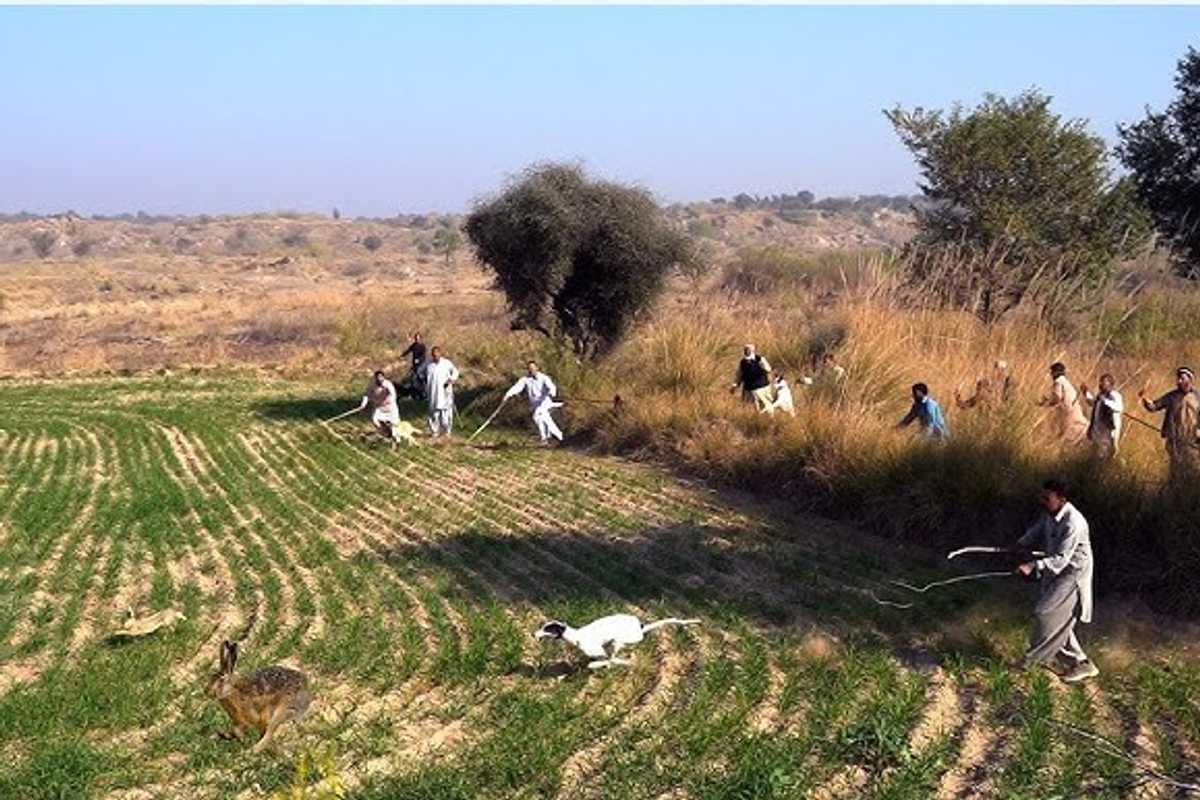Hunting hares? Pakistan's northwestern province imposes indefinite ban
Wildlife Department’s official says teams working to ensure compliance and protect these vulnerable species

Kamran Ali
Correspondent Nukta
Kamran Ali, a seasoned journalist from Khyber Pakhtunkhwa, Pakistan, has a decade of experience covering terrorism, human rights, politics, economy, climate change, culture, and sports. With an MS in Media Studies, he has worked across print, radio, TV, and digital media, producing investigative reports and co-hosting shows that highlight critical issues.

A screenshot from a video showing villagers release grey hounds to hunt down hares in the Potohar region.
Courtesy: Explore Potohar/YouTube
Decline attributed to hunting, conversion of agricultural land into housing societies, and use of harmful chemical sprays on crops
Violators to face penalty ranging from a minimum fine of PKR 20,000, or six-months’ imprisonment, or a maximum fine of PKR 45,000, or three-years’ imprisonment
The Wildlife Department in Pakistan’s province of Khyber Pakhtunkhwa announced on Tuesday a ban on hunting of all species of hares.
According to an official notification, the ban applies to the entire 2024-25 shooting season and will remain in force until further notice.
Dr Mohsin Farooque, the Chief Conservator, explained that the decision was made due to declining hare populations. He stated that hares, including the Cape Hare, Indian Hare, and Arabian Hare, are predominantly found in regions such as Kohat, Mardan, Malakand, Haripur, and Chitral.
Legal basis for the ban
The ban was enforced under the powers granted by Section 55(b) and (c) of the Khyber Pakhtunkhwa Wildlife and Biodiversity (Protection, Preservation, Conservation, and Management) Act, 2015.
This legislation defines all wild animals as government property, making hunting without a permit illegal.
Violators of the ban face strict penalties. The Act prescribes a minimum fine of PKR 20,000, or six-months’ imprisonment, and a maximum fine of PKR 45,000, or three-years’ imprisonment.
Additionally, offenders may be required to pay the value of the property involved or face extra imprisonment in lieu of the payment.
The Wildlife Department stated that the ban would be enforced indefinitely, with penalties under the Wildlife Act for violators. According to Dr Farooque, the department’s teams are working to ensure compliance and protect these vulnerable species.
Hunting enthusiasts and communities in affected areas have been urged to respect the new restrictions to safeguard the biodiversity of Khyber Pakhtunkhwa.
Hare populations on the decline
Dr Farooque attributed the decline in hare numbers to three major factors: hunting, the conversion of agricultural land into housing societies, and the use of harmful chemical sprays on crops.
“While the department has no jurisdiction over land development or pesticide use, it can impose restrictions on hunting, which it has done through this ban,” he told Nukta.
Farooque elaborated that hunters often exploit permits issued for other species to hunt hares illegally. This has further threatened hare populations, which are monitored based on their frequency of sightings in designated areas.
"Hares are not seen as frequently as they used to be, indicating a serious decline," he remarked.







Comments
See what people are discussing